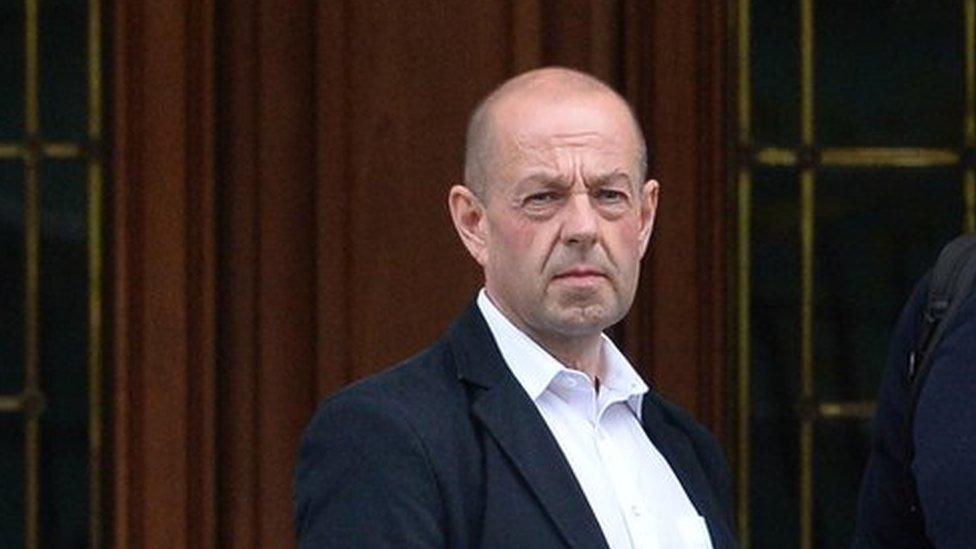Tribunal hears claims police spied on journalists to 'unmask' source
- Published
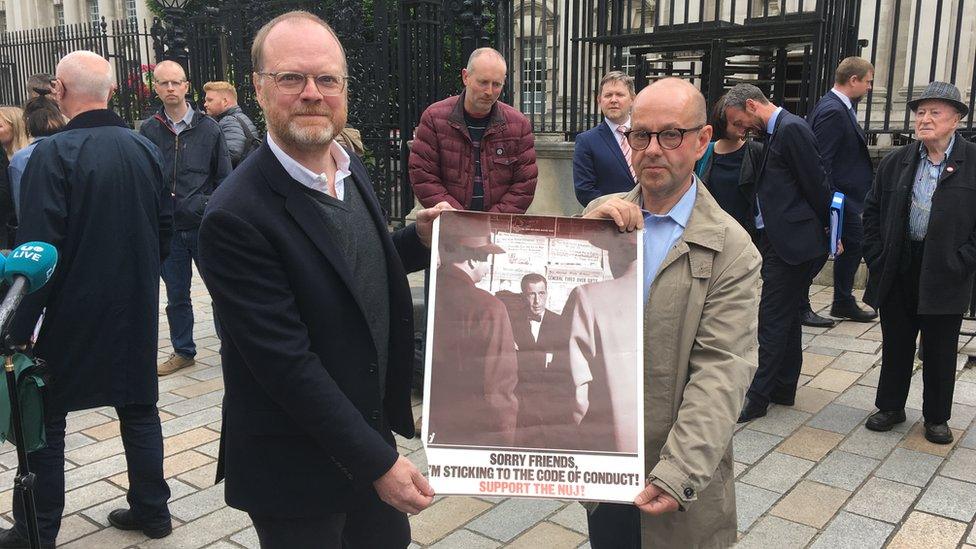
Trevor Birney and Barry McCaffrey had mounted a legal challenge against the police raids
Police mounted a covert surveillance operation after arresting two journalists to try to unmask one of their sources, a tribunal has heard.
The Investigatory Powers Tribunal is examining allegations that Trevor Birney and Barry McCaffrey were subject to unlawful covert surveillance.
Mr McCaffrey complained to the tribunal in 2019.
He and Mr Birney had been arrested over the suspected theft of files from the Police Ombudsman's Office in 2018.
They had been working on a documentary about the Loughinisland killings.
The film examined how the Royal Ulster Constabulary (RUC) handled the Ulster Volunteer Force (UVF) murders of six Catholic men at a pub in Loughinisland in 1994.
The tribunal was told that the arrest of the film makers was a "disruptive" tactic to see if the reporters would reach out to the source after their release from custody.
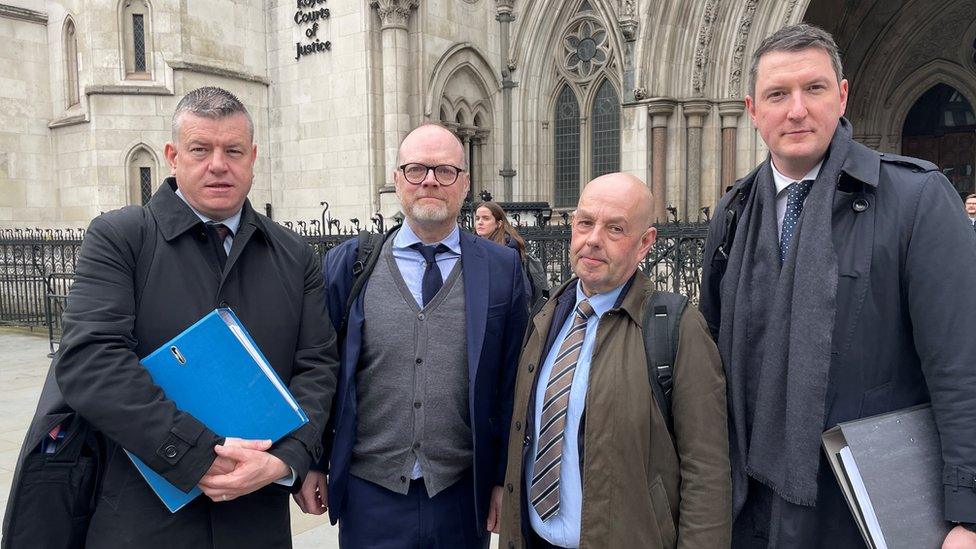
Niall Murphy, Barry McCaffrey, Trevor Birney and John Finucane outside the royal courts of Justice
The Police Service of Northern Ireland (PSNI) later unreservedly apologised for how the men had been treated and agreed to pay £875,000 in damages to the journalists and the film company behind the documentary.
The settlement came after a court ruled that the warrants used by police to search the journalists' homes and Fine Point Films had been "inappropriate".
The journalists are arguing that there were repeated and unjustified attempts by the PSNI and Durham Police to identify their sources.
They say the extent of their conduct to unmask their confidential sources has been kept secret for many years.
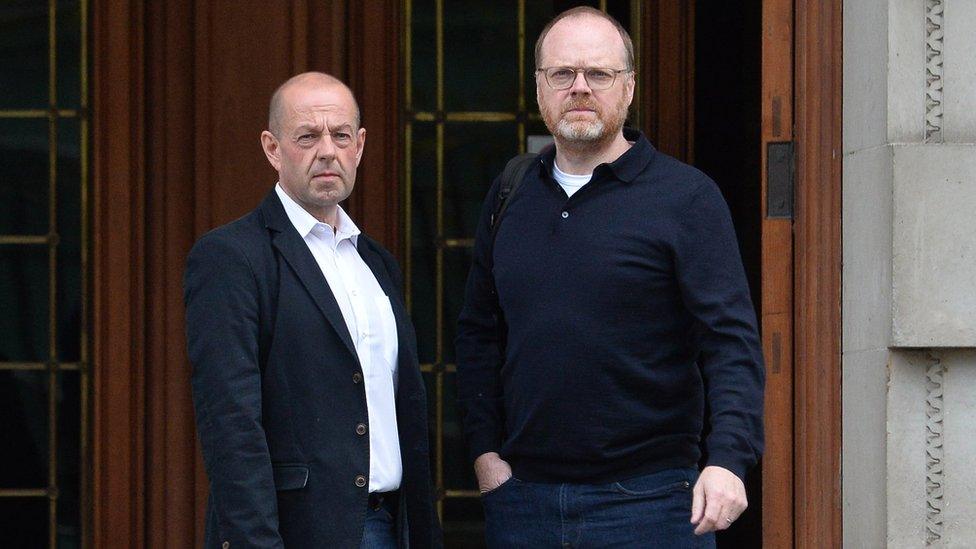
Barry McCaffrey (left) made a complaint to the Investigatory Powers Tribunal along with Trevor Birney (right) in 2019
'Covert strategy'
As well as the unlawful search of their homes and offices, the documents disclosed also refer to a parallel "covert strategy".
Their lawyer, Ben Jaffey KC said the case was "a shambles" and that new material was disclosed just before the hearing on Wednesday.
Mr Jaffey said he had seen a 78-page document relating to the Metropolitan Police Service at the end of last week.
He said that on Wednesday morning he was shown an 86-page redacted document from the PSNI and Durham police.
The hearing has now been adjourned until Thursday morning to allow the legal parties to discuss how the case should proceed.
Mr Jaffey said a Directed Surveillance Authorisation was granted to monitor a third party suspected of being the source of the leaked documents.
It appeared to have been in place for two weeks before it was cancelled.
The exact nature of the surveillance had been redacted, and although the police have said it was not intrusive Mr Jaffey said they did not accept that.
He said the aim of the operation had been to unmask the journalists' source.
Phone data
It was also revealed that the Metropolitan Police Service (MPS) had obtained communication data from Barry McCaffrey's phone in 2011 in relation to another investigation involving a leak of documents.
They had even written to the journalist asking him to identify his source, a request which was refused.
Unknown to Mr McCaffrey, the MPS then obtained phone data and this was later given to the PSNI as part of their 2018 investigation.
The PSNI has accepted that even though it met the rules in place at the time, the 2013 access of Barry McCaffrey's phone data was unlawful.
It said anti-corruption officers were investigating intelligence that a senior member of PSNI management had received payments of a corrupt nature.
The PSNI wanted to identify the employee who was passing sensitive information regarding an ongoing investigation to a journalist.
It has undertaken to delete material from its computer system that was obtained in 2013.
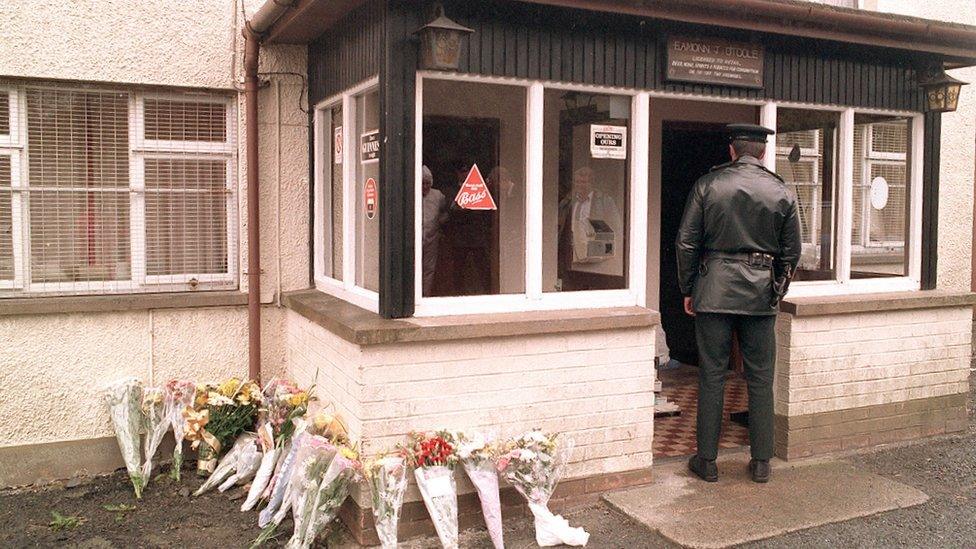
The attack in Loughinisland took place in June 1994 at the Heights Bar
Data preservation request
Following the court ruling in 2018, a request was made to Apple to preserve data in Mr Birney's work account.
The PSNI said this was not a request to obtain emails, documents, photographs or data, but was to ensure that no material was deleted.
As no data was requested or provided to the PSNI, it argues there was no breach of the journalist's rights.
Durham Police have admitted that this request was not recorded on its systems and was in breach of its policies.
The journalists argue this was an attempt to circumvent legal protections for journalistic sources.
'Somewhat shocking'
Outside court, Mr Birney and Mr McCaffrey expressed shock at the details that had emerged on the first day.
"I think it was stunning just to hear our counsel outlining just what has been going on since 2011," Mr Birney told reporters outside the Royal Courts of Justice in London.
"It is still somewhat shocking."
Mr McCaffrey said: "It's shocking, but there's still much more that we need to know - we still need answers."
He added: "Three different police forces in the UK have been trawling journalists, every journalist in the UK should tonight be asking themselves was I one as well. Was it me?
"And they should be going to the IPT and asking and finding out have they been victims like Trevor and myself."
The journalists are being supported by the National Union of Journalists and Amnesty International.
Former Police Ombudsman Baroness O'Loan was following proceedings in the public gallery, along with Conservative MP David Davies and Sinn Féin MP Chris Hazzard.
Alliance MP Stephen Farry also met the journalists outside the court.
Related topics
- Published3 June 2019
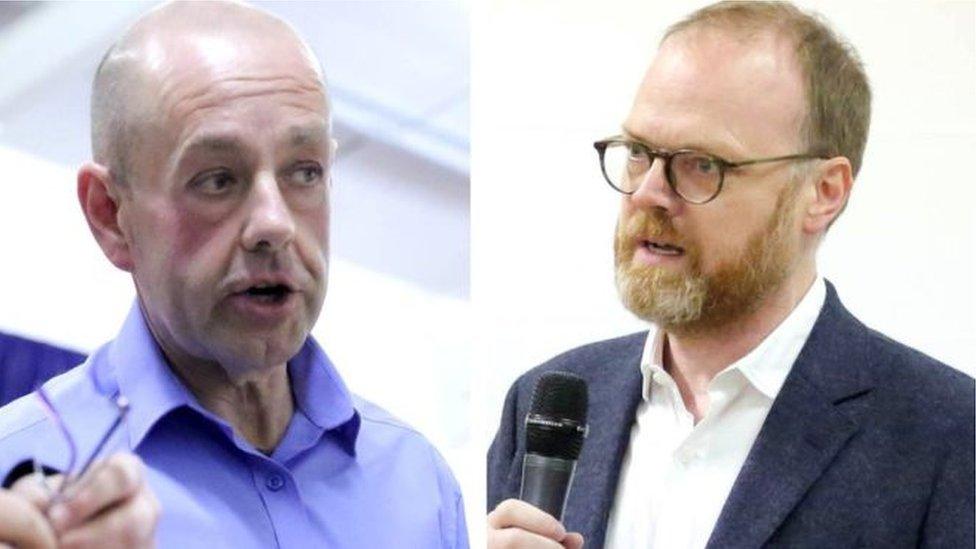
- Published27 November 2020
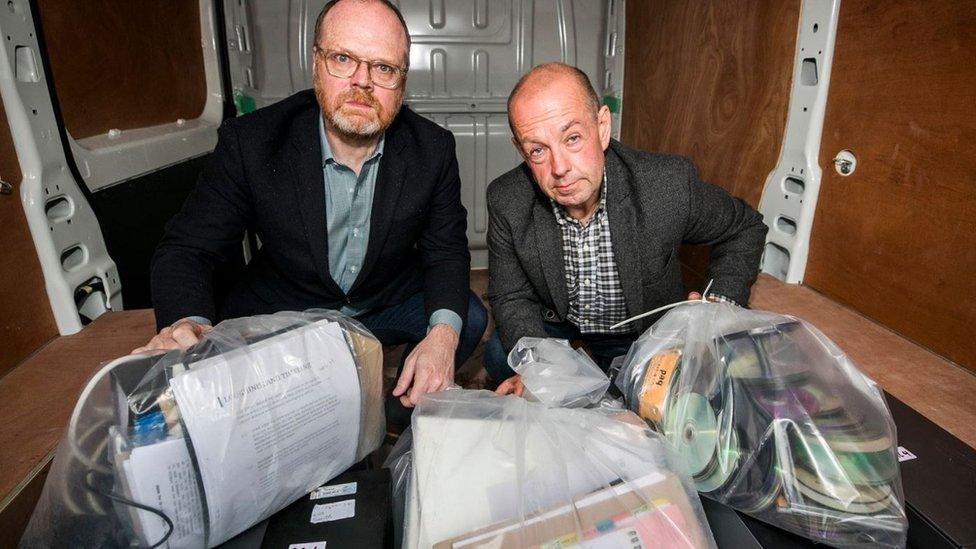
- Published24 July 2023
